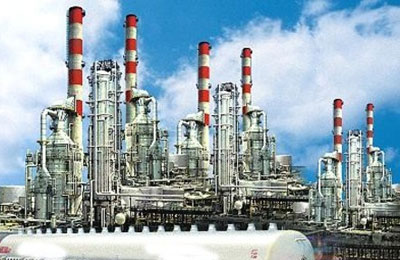
Kuwaiti oil refineries face more shutdowns
Kuwait, February 16, 2014
Kuwaiti oil refineries are at risk of more shutdowns because of an inadequate power supply system, which has blighted the oil producer during years of rapid demand growth and underinvestment.
The exact cause of the power failure that shut down all three of the country's oil refineries with a total capacity of around 930,000 barrels per day late last month is unclear.
Officials have not discussed the specific cause publicly; officials at the electricity ministry were not available to comment.
But the fact that three complexes - the 460,000 bpd Mina Ahmadi, 270,000 bpd Mina Abdullah and 200,000 bpd Shuaiba refineries - were all knocked out at the same time suggests the fault lies with the state electricity supplier, not onsite electrical faults, analysts and industry officials said.
"Power was cut from the source," a spokesman for Kuwait National Petroleum Co told Reuters.
Refinery outages are common around the world, and last month's incident was not the first time that three refineries were hit simultaneously.
A substation shutdown last April caused major problems at three neighbouring refineries in Texas, sparking a fire at one and briefly shutting multiple units at the largest U.S. refinery in Port Arthur.
But those refineries make up just 6 per cent of total US capacity. Last month's closures in Kuwait halted all fuel production in the country, and it was a week before all three of its refineries returned to normal.
Kuwait, one of the world's biggest crude oil producers, refines about a third of its crude production of 3 million bpd and exports around 660,000 bpd of those petroleum products, according to Opec figures.
The Ministry of Electricity and Water is Kuwait's sole supplier and manager of electricity supplies. Ultra-low electricity prices give residents little incentive to limit their use of air conditioning in one of the world's hottest climates, helping make Kuwait the fourth biggest per capita energy consumer in the world, according to the World Bank.
A study by CESI Middle East, a power sector consultancy, for the League of Arab States forecast annual growth in Kuwait's peak demand of between 5 and 6 per cent up to 2030.
At the same time, despite its wealth, Kuwait has failed to modernise and expand its infrastructure or attract many foreign investors to do it, largely because of persistent political squabbling and dense bureaucracy. Contracts are often delayed or cancelled because of parliamentary pressure or changes of government.
In the latest example, Kuwait's parliament voted on Feb. 5 to investigate a contract awarded to a GDF Suez-led consortium to build a 1,500-megawatt power generation and drinkable water complex. The Al-Zour complex had originally been expected to start supplying the country in 2014, a date which was pushed back to 2016.
A shortage of natural gas to feed power plants also strains stability of electricity supplies, especially in summer when Kuwait relies on costly imports of liquefied natural gas shipped in from around the world to meet a seasonal demand surge.
"Kuwait is perpetually in a state of electricity supply shortage and experiences frequent blackouts and brownouts each summer," the U.S. Energy Information Administration said in an analysis.
"In the past decade, the development of Kuwait's electricity sector has stalled because of political factors and lack of investment, despite average annual demand growth of 6 per cent," it added.-Reuters







